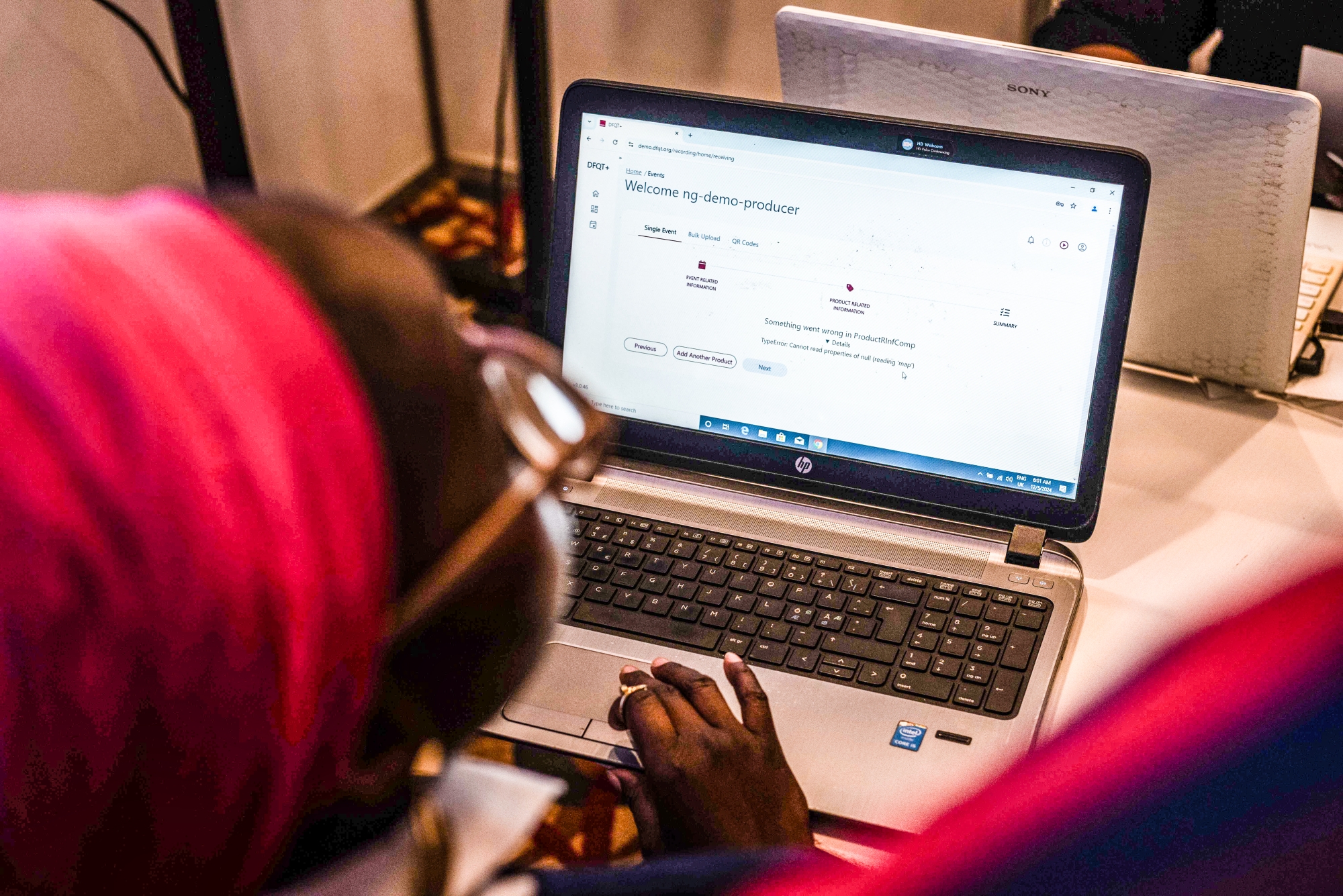
Every October, the world comes together to mark World Food Day, a moment to reflect on progress and renew our commitment to building food systems that nourish everyone. The 2025 theme, “Hand in Hand for Better Foods and a Better Future,” speaks to the power of collaboration. At GAIN Nigeria, we see this play out every day in our partnerships across governments, industry, and civil society. It is not just about what we do as an organization it is about what we achieve together. One powerful example of this is the Digital Fortification Quality Traceability Plus platform (DFQT+) platform, now transforming how fortified foods are monitored in Nigeria.
For years, globally and in Nigeria, large-scale food fortification has been presented as one of the most cost-effective ways to combat micronutrient deficiencies, which continue to affect millions. Iron deficiency, for instance, remains a leading cause of anaemia, and vitamin A deficiency threatens child survival and healthy development. While laws and standards exist to make sure staples like edible oil are fortified, enforcement has often struggled. The major challenge has been the difficulty in accessing timely and actionable fortification data across the value chain. This makes compliance monitoring and enforcement challenging and also limits the ability to assess the impact of national fortification policies.
The Digital Fortification Quality Traceability Plus (DFQT+) platform was developed to address these challenges and more. Too many times, checks have happened long after products reached local markets and homes. Regulators have been left flipping through logbooks in factories, and industry players have spent time and money preparing for audits without always having the right tools to ensure compliance day to day. The result is a system with gaps where relevant fortification data are not available to evaluate impact of efforts by government and other donors to solve the challenge of malnutrition in Nigeria. This lack of access to relevant fortification data makes compliance monitoring and enforcement practically difficult. price.
It became evident that a collaborative effort was necessary to bring about the change needed. In 2022, GAIN, through the Large Scale Food Fortification programme, together with the National Agency for Food and Drug Administration and Control (NAFDAC), the Standards Organisation of Nigeria (SON), the Federal Competition & Consumer Protection Commission (FCCPC), and leading oil producers including PZ Wilmar, Apple & Pears, and Sunola Oil, began co-developing a digital solution. The DFQT+ platform is a global digital system, with pilots currently running in Nigeria, Bangladesh, and India. Local stakeholders in Nigeria provided critical inputs that helped the DFQT+ consortium design and refine the platform to fit the national context. Secure, locally hosted, and designed with users at the centre, the system replaces tedious manual recording with real-time data sharing that is transparent, traceable, and reliable.
The pilot (Minimum Viable Product) went live in April 2024, and shortly thereafter, edible oil producers began entering fortification data directly into the system. Meanwhile, regulators utilized dashboards to monitor trends, track compliance, and enhance the strategic focus of their inspections. Instead of relying on random inspections or extensive documentation, regulators could quickly determine whether a batch of oil meets national standards. Producers also found it easier to verify premix quality, prepare for audits, and maintain consistent fortification practices across their teams. The time required for paperwork has been significantly reduced from hours to mere minutes, leading to decreased costs, fewer errors, and minimized delays.
The difference has been immediate. Regulators can now testify of greater efficiency, fewer blind inspections, and improved coordination across agencies. Producers highlight how expectations are now clearer, audits less stressful, and compliance more predictable. “Digitalizing this process is not just for regulators; it’s for the entire value chain,” said Mr. Tedoo Anom from the Standards Organisation of Nigeria. “It removes procedural hurdles and leads to faster standardisation, ensuring that meeting national standards is simpler, clearer, and more predictable.”
The influence on the industry has been equally significant. “Before DFQT+, verifying data meant flipping through large logbooks,” said Uche Ikechukwu from PZ Wilmar Foods. “Now, all the information is readily available and easily accessible. It helps us prepare before regulators even visit and ensure compliance is maintained continuously.”
The voices reflect the core achievements of DFQT+: a collective sense of responsibility and trust. By the midpoint of the pilot, six key stakeholders (producers and regulatory agencies) were actively sharing live data, demonstrating that collaboration can lead to actionable outcomes and measurable results. The coordination challenge of aligning regulators, producers, and technical experts, which seemed impossible, has now transformed into a functional reality.
This marks the initial phase. Stakeholders have reached a consensus on the forthcoming actions: validating the system via expert reviews, enhancing user training initiatives, refining the platform interface for greater intuitiveness, and establishing clear operational procedures to ensure sustainability. The goal is to fully hand over responsibility to the government regulatory agency, making sure the platform fits into Nigeria’s regulatory system and eventually adds more fortified food options.
This World Food Day, the story of DFQT+ is a reminder of what happens when actors come together with a shared vision. The challenge was urgent: millions of Nigerians lacking essential nutrients despite fortification laws. The action was bold, co-designing a digital solution that works for everyone across the value chain. The achievement is tangible, a live system already changing how fortified foods are monitored and trusted.
Hand in hand, Nigeria is demonstrating to the world that effective collaboration between regulators and producers can enhance the impact of fortified foods, ensuring that they fulfil their commitment to providing safer, healthier, and more nutritious diets for every household in the country.